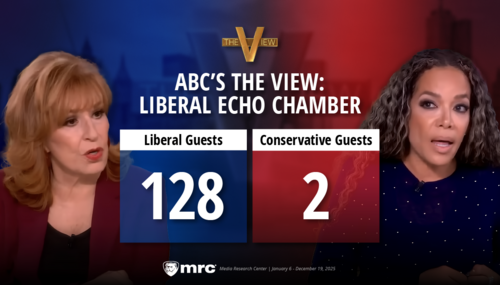The journalists at CBS This Morning on Monday compared the violent, bloody attacks on African Americans during civil rights marches in 1965 to voter ID laws passed by various states in the last few years. Co-anchor Norah O'Donnell talked to Oprah Winfrey, producer/star of the new film Selma. O'Donnell marveled, "...Given the Voting Rights Act, 1965, I went back and looked. Thirteen states have passed more restrictive voter ID laws in the last three years, that states are trying to make it harder to vote." [MP3 audio here.]
Actor David Oyelowo, who plays Martin Luther King in the film, slammed the 2013 Supreme Court decision that struck down part of the 1965 Voting Rights Act. He derided this as "dismantling" the act and added, "...One of the things the film does is you see the parallels two between Selma and Ferguson, you see the country hasn't changed enough, hasn't changed that much."
Oyelowo continued, "So, you know, the notion that we no longer need the Voting Rights Act, I think, is criminal."
O'Donnell's assertion that supporting voter ID laws is racist sounds more like something seen on MSNBC. On October 13, 2014, Chris Matthews wondered if Republicans support ID laws "because they don't like blacks."

DAVID OYELOWO: The parallels between Selma and Ferguson are indisputable. You know, the way I look at it, Ferguson felt like a black problem. Once we went into Eric Garner, it became an American problem. You have the same thing with Selma. Voting rights, denial of voting rights was a black problem. The minute we had Bloody Sunday, it became an American problem. We are at the same time in history.
A partial transcript of the December 15 segment is below:
8:40
DAVID OYELOWO: The parallels between Selma and Ferguson are indisputable. You know, the way I look at it, Ferguson felt like a black problem. Once we went into Eric Garner, it became an American problem. You have the same thing with Selma. Voting rights, denial of voting rights was a black problem. The minute we had Bloody Sunday, it became an American problem. We are at the same time in history. We now need to just – like you said, what are the demands?
...
8:43:37NORAH O'DONNELL: One of the things I looked up, you know, given, given the Voting Rights Act, 1965, I went back and looked. Thirteen states have passed more restrictive voter ID laws in the last three years, that states are trying to make it harder to vote.
OYELOWO (Actor in "Selma"): Yeah. This very act that was passed, that was fought with blood, it was dismantled as of last year. The notion being that the country has changed enough that we no longer need the Voting Rights Act. Well, I think, you know, one of the things the film does is you see the parallels between Selma and Ferguson, you see the country hasn't changed enough, hasn't changed that much. So, you know, the notion that we no longer need the Voting Rights Act, I think, is criminal.
OPRAH WINFREY: It hasn't changed enough. But yet David speaks of being from another country and marveling at the -- at what we've accomplished in the short amount of time since, you know, civil rights.
OYELOWO: Well, you know, that's what's amazing about what you symbolize in the film. You could have been Annie Lee Cooper and here you are, you.




